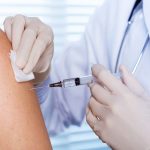
The bad news? COVID-19 may be around for a long, long time. The good news? Even if it does, new research suggests it could very well end up being just another mild illness, bringing with it inconvenience and discomfort, but rarely hospitalization or death. Why? The theory is rooted in the epidemiology patterns previously followed by four other coronaviruses. All have been in circulation for a very long time. In fact, they’re endemic, which means that most people get infected and develop immunity during childhood that protects against serious illness (although not reinfection) as adults. And that trajectory led a team of investigators to model what might ultimately happen in the future if most people were similarly exposed to the new coronavirus during childhood. “In the vast majority of cases, the endemic human coronaviruses [HCoVs] cause nothing more than a common cold, [meaning an] upper respiratory tract infection,” said study author Jennie Lavine, a postdoctoral researcher in the department of biology at Emory University in Atlanta. About 15% of adult common colds are believed to be attributable to HCoVs, she added. “They sometimes lead to lower respiratory tract infections, particularly in very young children and the elderly,” Lavine noted. Only in rare cases, among particularly vulnerable populations, do they trigger more serious illness. “It seems likely that COVID-19 will end up playing out this way,”… read on > read on >











